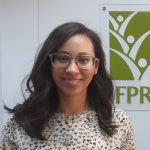Dalia Elsabbagh, IFPRI Egypt

After four years of continuous collaboration between IFPRI and different institutions in Egypt, Jordan, Tunisia, and Yemen, the final workshop series was held during the months of December 2020 and January 2021 to demonstrate the final product “Online AIDA”.
“We are very proud to show the product of this collaboration, which is a very innovative, digital, online investment prioritization tool called AIDA”, said Clemens Breisinger, Country Program Leader in IFPRI, in Online AIDA Virtual Training for Jordan.
The Agricultural Investment Data Analyzer (AIDA) project develops a set of economy-wide evaluation tools to help improve the efficiency, effectiveness, and scaling up of rural development policies and projects. Online AIDA is an online tool that is easy to use and that provides the user with results for a pre-defined set of scenarios.
“AIDA is built on governmental data, easy to use through specified inputs and output, making it an easy and rapid tool to know the different investments' impact in little time…”, said Mohamed Abdelgadir, Country Programme Manager for the Near East, North Africa and Europe Division at IFAD, in Online AIDA Virtual Training for Yemen.
AIDA is a four-year project (2017-2021) funded by the International Fund for Agricultural Development (IFAD) with co-financing from CGIAR Policies, Institutions and Markets Program (PIM). The project is implemented by the International Food Policy Research Institute (IFPRI) in collaboration with local institutions such as Ministries Agriculture, Planning, and International Cooperation; Statistical Agencies; universities; and research institutes.
“Our experience in IFAD shows that numerical solutions can reinforce the resilience in local food systems and shocks’ resistance especially in rural poor areas”, said Phillipe Remy, Country Director for Near East, North Africa, Europe, and Central Asia Division in IFAD.
“This workshop has a relative importance in this period as statistics and statistical tools are the right tools for good planning. It helps decision-makers to prioritize policies and investments to stimulate the agriculture sector in Jordan and know the different linkages to the sector in order to increase GDP, production, employment, and ameliorate the living standards for the workers.”, said Mr. Malek Al-Breazat, Ministry of Planning and International Cooperation of Jordan.
To build this tool, IFPRI organized a number of workshops with stakeholders in partner countries. For each country, IFPRI held a workshop on constructing the Social Accounting Matrices (SAM) and explaining the use of the Computable General Equilibrium (CGE) Model. Additionally, IFPRI had a series of focus groups with agriculture investment experts in each country to identify our investment parameters including coverage rates, costs, and productivity gains.
“Today’s workshop is very important to help increasing food security using the tool to direct agriculture investments in order to tackle such an important aspect in Yemen especially that around 20 million Yemeni are lacking food security.”, said Lamis Al-Iryani, Evaluation Manager in the Social Fund for Development in Yemen.
In the first part of the workshop, Mariam Raouf, Senior Research Associate at IFPRI, previewed the Online AIDA tool for participants, including a full overview of the building process. Presentations can be found on these links: Egypt, Jordan, Tunisia, and Yemen. In the second part, Dalia Elsabbagh, Senior Research Assistant at IFPRI, taught participants how to use the tool, and interactively discuss its functionality in policymaking. You can access the Online AIDA tool for Egypt, Jordan, Tunisia, and Yemen using the adjacent hyperlinks.
“IFAD defines innovation as a new process, approach or model that adds value and delivers a sustainable, inclusive and new solution to agriculture development challenges…”, said Mohamed El-Ghazaly, Country Programme Officer in IFAD.
Participants engaged in the workshop with questions covering all aspects of the Online AIDA tool. With the help of Manfred Wiebelt, a Senior Research Fellow and Professor of Economics at the Kiel Institute for the World Economy, many of the questions were addressed by on-the-spot simulations to some investments effect, as well as a more elaborate explanation of the model’s background.
The ultimate goal of AIDA is to influence the design and prioritization of policies and investments to enable rural people to overcome poverty. Specifically, AIDA-based policy and investment guidelines and tools will support IFAD and Partner Governments in the design and impact assessment of national strategies and rural investment projects. The project will also enable analysts in participating countries to independently perform AIDA-based policy simulations and evaluations. Advocacy and policy-engagement will raise awareness and provide the evidence base for creating jobs and reducing rural poverty. The tool is designed for policymakers, government personal, international organizations, researchers, and members of academia to achieve such policy engagement goals.
“The AIDA tool, with the help of IFPRI, has helped the Ministry of Agriculture while building the 2030 agriculture strategy”, said Mohamed El-Kersh, Assistant to the Minister of Agriculture and Land Reclamation (MoALR), Egypt.
*AIDA was officially launched on February 24th, 2021.
